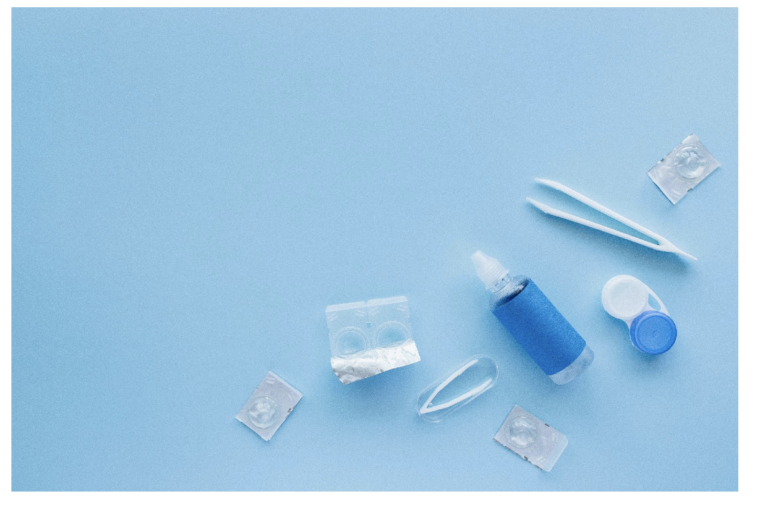How to Get Contact Lenses for Cheaper
[Please embed photo: https://images.pexels.com/photos/5843423/pexels-photo-5843423.jpeg]
Have you been diagnosed with a refractive error like myopia (nearsightedness)?
When it comes to vision correction, you generally have two options: eyeglasses and contact lenses. Glasses are a tried-and-true corrective aid, but they may not suit your needs depending on your lifestyle. That’s why over 45 million Americans wear contact lenses. Contacts are often considered more convenient to wear: they don’t scratch, break, or fog up so easily, and they provide both sharper eyesight and peripheral vision.
If you’re looking to be frugal about your eyewear purchases, though, contacts aren’t really the cheaper option. Because you have to replace them regularly and purchase additional equipment—like cases and cleaning solutions—along with them, they can be expensive upfront. However, you don’t need to let those costs limit your options to eyeglasses, especially if the optometrist assessing you feels you’re better off using contacts to correct conditions like astigmatism or meet specific lifestyle requirements like sports participation. That’s because there are always plenty of ways to get contact lenses for cheaper—without compromising on the quality of the pairs you get. Here’s how you can get started.
Shop online
Online retailers don’t need to bulk up prices just to pay for a brick-and-mortar space, so they often sell contacts for cheaper. On top of that, many make it easier to compare different contact lens brands so you can find the most cost-effective one for you. Some even offer discounts to cut prices further. These features are especially apparent in Target Optical’s contact lenses. Coming from brands like Acuvue and Ultra, these can be sorted by price range so you can instantly find the best ones for your budget. The retailer also offers a number of contact lens deals, with codes like GET20 allowing you to get further discounts on your first purchases with the site or when buying contacts from specific brands. You can take advantage of these to save even more money while still getting contact lenses from reliable manufacturers.
Try monthlies
To minimize how often you replace your contact lenses and how much you spend on new pairs, consider buying monthlies rather than single-use daily lenses. You may find this tip more convenient if you plan to wear contacts full-time rather than alternating between them and eyeglasses. You’ll just want to be more careful about how cleanly you handle your monthlies: unlike dailies, they’ll give bacteria time to grow, so be sure to follow the lens care practices given by your optometrist. To make the most out of the cost savings you can get, consider buying your monthly contacts in bulk—such as by purchasing enough pairs to last you up to a year in advance. In these cases, retailers will usually waive additional costs like shipping fees.
Use FSA, HSA, or vision insurance
Another way to slash prices on contact lenses is to frequent a seller that accepts untaxed dollars from flexible spending accounts (FSA) or health savings accounts (HSA), as well as vision insurance. The easiest way to get an FSA is through your employer. Meanwhile, you can avail of HSAs and vision insurance plans either via your employer or on your own. From here, simply choose a retailer that accepts FSA, HSA, or vision insurance coverage from your specific provider. Contact lens seller Zenni Optical, which offers dailies, biweeklies, and monthlies from brands like Alcon and Bausch + Lomb, shows what you can look for. It doesn’t impose purchase limits when you buy contacts using FSA or HSA dollars. And though it doesn’t directly accept vision insurance, invoices can easily be reimbursed by your provider.
Take advantage of tax deductions
If you’re buying contacts to correct your vision—and not just for purely cosmetic reasons—here’s some good news: that’s considered a medical expense. In particular, we’ve noted that the IRS recognizes contact lens purchases as a health insurance deductible claim for self-employed individuals. Contact lenses bought for medical reasons are also generally deductible from your taxes if the amount you spent on them exceeds more than 7.5% of your Adjusted Gross Income or AGI. If you find your purchases check all the right boxes, it’s worth looking to save even more money when filing your taxes by taking advantage of these deductions.

